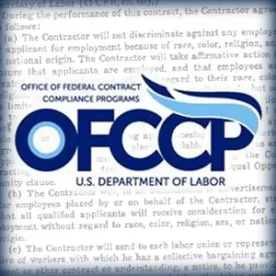As yet another confirmation that pay equity will be a priority for the Biden-Harris administration, the proposed Paycheck Fairness Act has been reintroduced in the U.S. House of Representatives as H.R. 7. The proposed legislation has a long history but has never been given a vote in the Senate – it last passed in the House of Representatives in 2019.
In summary, the current version of the Act would address the gender wage gap by amending the equal pay provisions of the Fair Labor Standards Act of 1938 to:
-
restrict the bases on which pay disparities may be legally justified and exclude “any factor other than sex”;
-
enhance nonretaliation prohibitions,
-
make it unlawful to require an employee to sign a contract or waiver prohibiting the employee from disclosing information about the employee’s wages, and
-
increase civil penalties for violations of equal pay provisions.
Notably, this version of the Act would require OFCCP to:
implement a survey to collect compensation data and other employment-related data (including hiring, termination, and promotion data) and designate not less than half of all nonconstruction contractor establishments each year to prepare and file such survey, and shall review and utilize the responses to such survey to identify contractor establishments for further evaluation and for other enforcement purposes as appropriate.
It seems this new OFCCP obligation could supplement OFCCP plans to require contractors to annually certify their AAP compliance, and seeks to fill the gap while EEOC studies the viability of collecting pay data for all employers through the EEO-1 reporting mechanism. For those of you who recall, this has remnants of the retired EO survey of years past.
There will likely be changes to the bill as it passes through the legislative process. As always, we will keep you updated with further developments.





 />i
/>i

